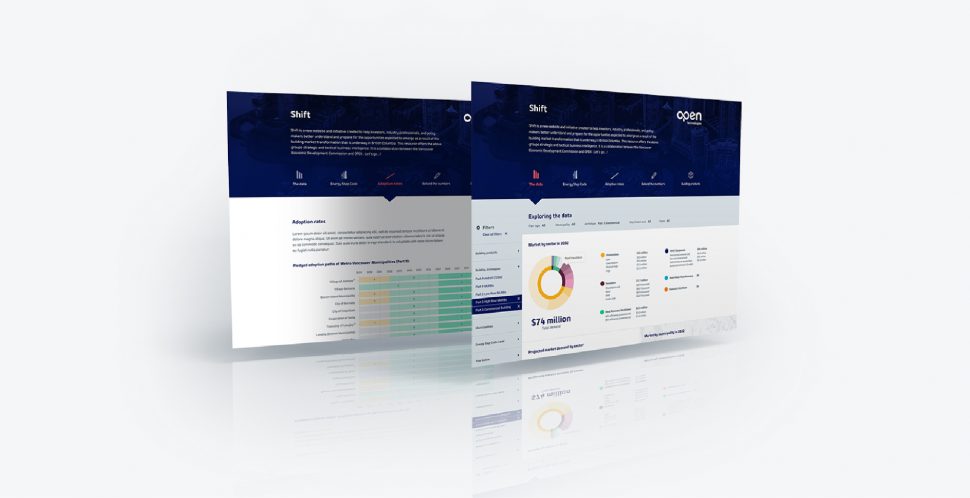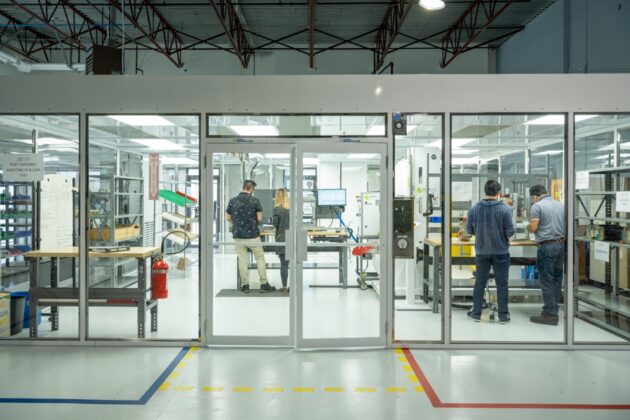On November 12, OPEN Technologies launched Shift, a new tool developed in partnership with the Vancouver Economic Commission (VEC) that will help building industry participants, capital providers, and policy makers to leverage Vancouver’s multibillion-dollar green buildings opportunity.
Shift is a data visualization tool that enables its users to make business decisions informed by the market transformation currently underway in Metro Vancouver. Under the BC Energy Step Code, municipalities around the region are committing to higher energy performance for new buildings, with the goal of becoming “net zero ready” by 2032. Shift tracks these policies and forecasts the market shift from conventional to higher-performance building products. OPEN Technologies designed the tool using data from VEC’s 2019 Green Buildings Market Forecast, which explores six key products and technologies — fenestration, insulation, heat recovery ventilators, heat pumps, domestic hot water and drain water heat recovery — that buildings will need to comply with the BC Energy Step Code and Vancouver Zero Emission Building Plan by 2032.
Users can filter the data as necessary, then connect with partners and local resources to learn more about green buildings policies, invest in Vancouver’s green buildings market, or building technical capacity.
Shift was made possible through the collaboration and support of Vancity Credit Union, BC Housing, the Real Estate Foundation of BC, and the City of Vancouver.
Why Green Buildings? Why Now?
The current climate crisis is drastically altering the way we work and live, resulting in powerful market opportunities for businesses that manufacture and distribute green buildings products. Vancouver’s suite of green buildings policies, particularly the Zero Emissions Building Plan and regional implementation of the BC Energy Step Code, are helping to generate demand for high-performance building products projected to inject $3.3 billion into the local economy by 2032 – but that’s just the beginning. BC-based exporters can also capitalize on global demand for environmentally friendly materials – including BC wood – whose market is expected to surpass $350 billion by 2022. Green buildings are clearly on the front lines of this transformation to a clean economy.
“Moving towards a cleaner economy is improving health, comfort and affordability in the places we live and work, and creating exciting new opportunities for people and businesses across B.C.,” said George Heyman, Minister of Environment and Climate Change Strategy. “Our CleanBC plan is driving innovation in the low-carbon building sector and helping B.C. businesses capture their incredible potential, as highlighted by the work of the Vancouver Economic Commission and partners.”
Leanne Sexsmith, Director of Grants and Special Projects at the Real Estate Foundation of BC explains, “With implementation of the Energy Step Code, BC communities are moving to higher standards of energy efficiency for buildings. We’re proud to help support Shift, a tool that uses economic modelling to predict and share information on market demand for green buildings, where they’ll be located, and what products will be needed to meet that demand.”
What is Shift?
Shift is an interactive web tool that allows local and international companies to view demand projections by municipality for a range of green buildings products, empowering them to strategically plan future investments. “OPEN is thrilled to help the building industry adapt as the market shifts towards greener building,” said Donovan Woollard, CEO of OPEN Technologies. “We believe Shift will quickly become a valued resource to help industry participants and investors track where the building components market is going, and make confident decisions as a result.”
Among its many features, the tool can generate large-scale demand numbers across multiple sectors; drill down to specific opportunities within individual product categories, such as windows; or hone in on particular types of products, such as high-performance windows with a U-Value below 1.2.
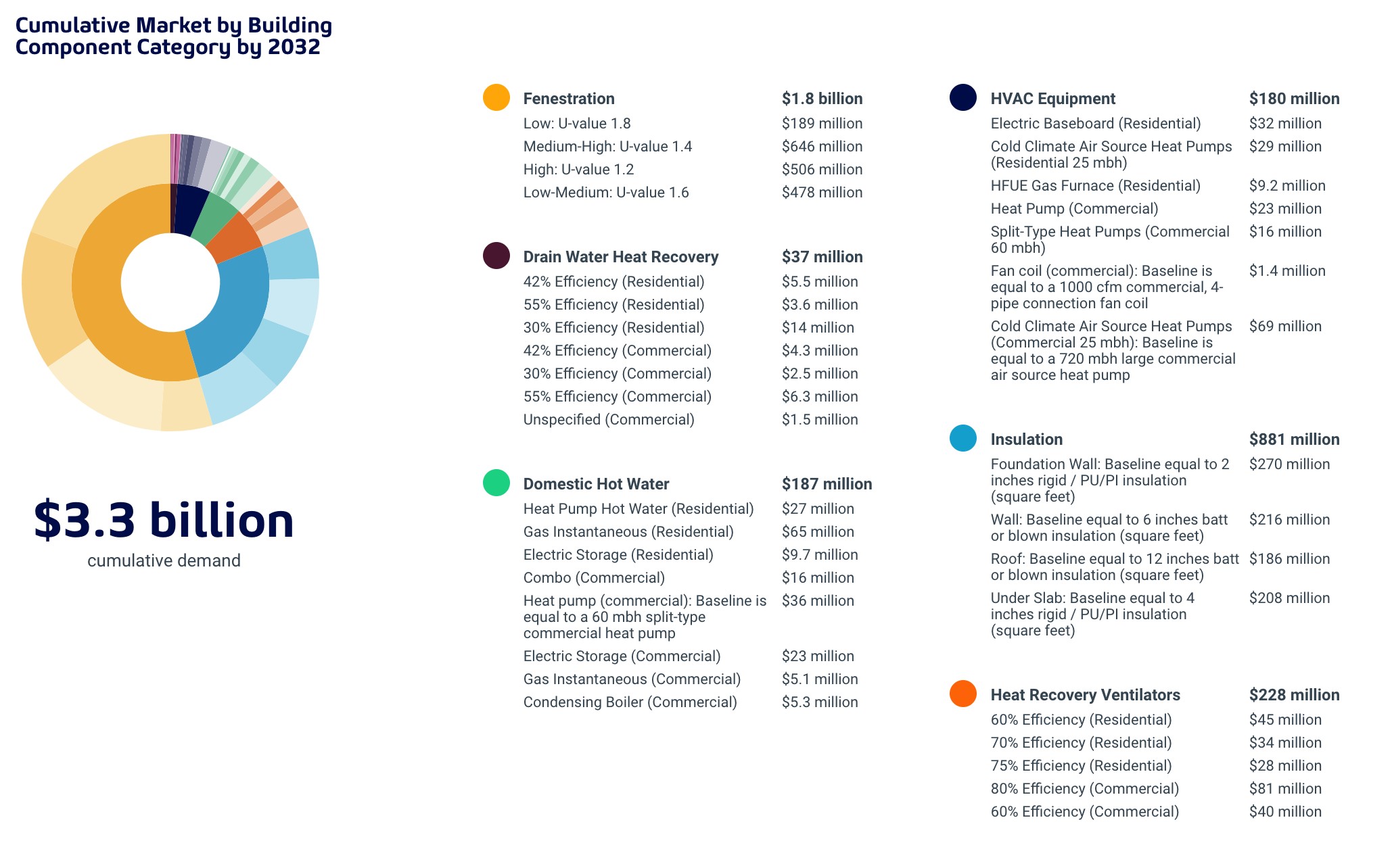 Pictured: a cumulative demand view for all product types and sub-categories in Shift.
Pictured: a cumulative demand view for all product types and sub-categories in Shift.
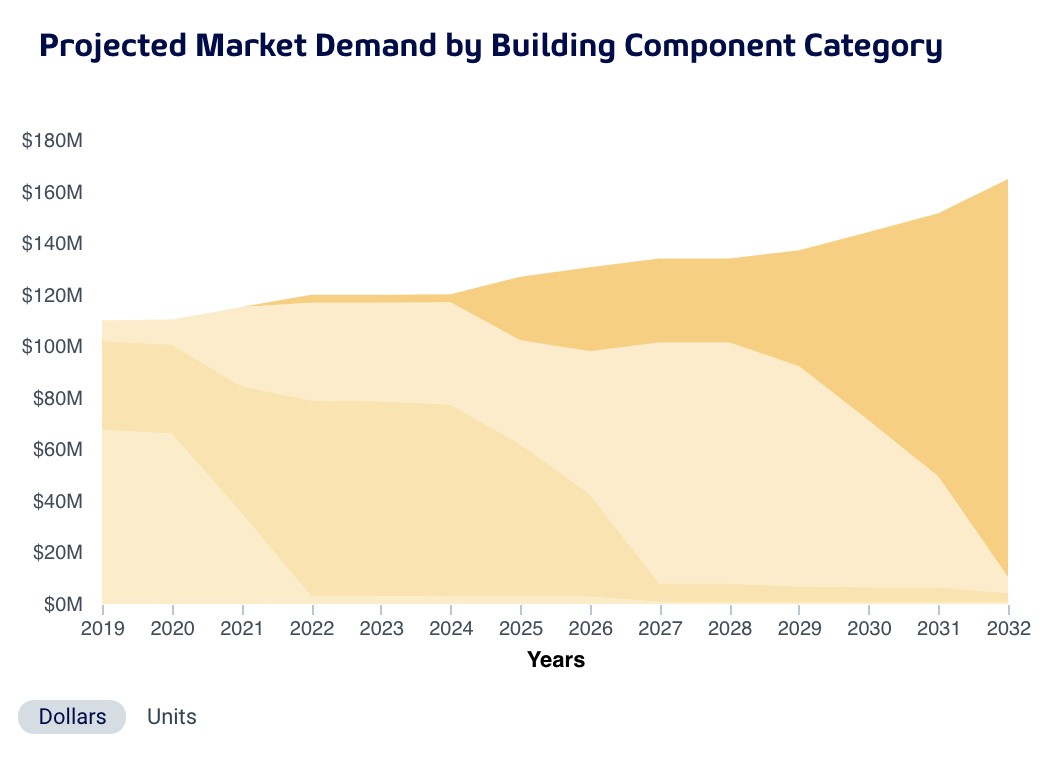 Pictured: a product-specific view of windows and doors, showing the alteration of demand by product sub-category between 2019 and 2032, where low performance product is no longer in demand at all by 2032. This projection is in dollars, but can also be toggled to show units.
Pictured: a product-specific view of windows and doors, showing the alteration of demand by product sub-category between 2019 and 2032, where low performance product is no longer in demand at all by 2032. This projection is in dollars, but can also be toggled to show units.
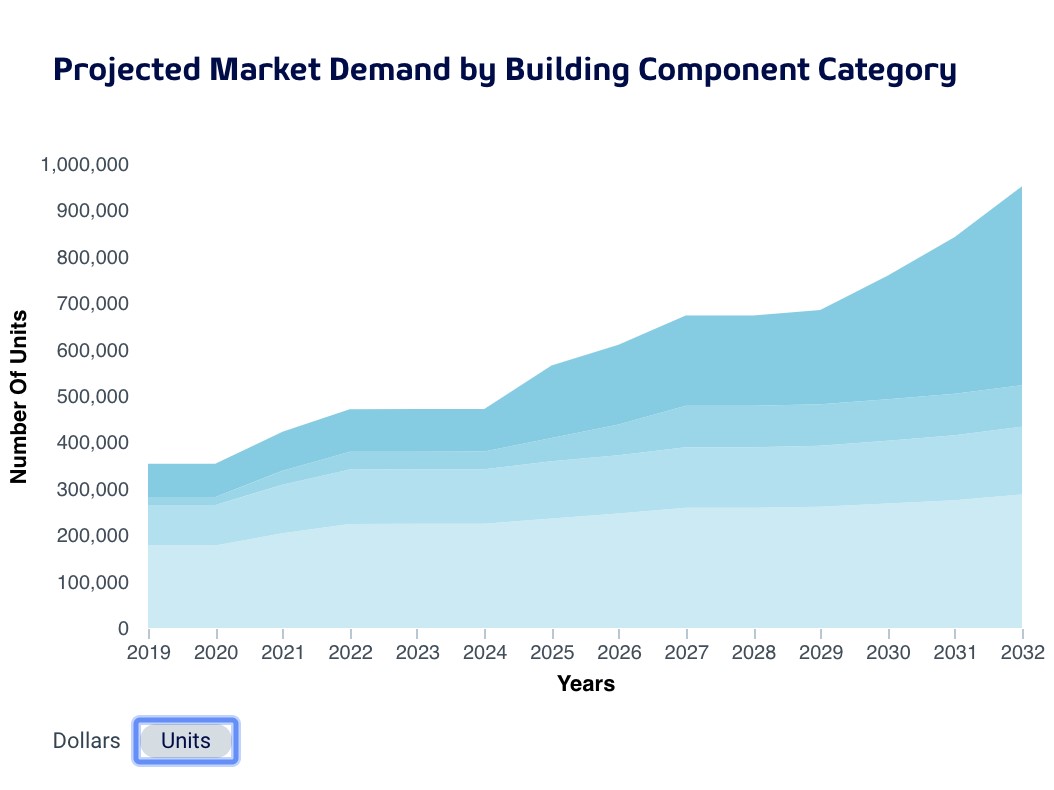 Pictured: a product-specific view of insulation, shown in units, and illustrating an overall growth in the amount of insulation that is used in all buildings in Metro Vancouver, in large-part driven by the smaller buildings.
Pictured: a product-specific view of insulation, shown in units, and illustrating an overall growth in the amount of insulation that is used in all buildings in Metro Vancouver, in large-part driven by the smaller buildings.
For the strategic partners and funders, Shift represents another novel way to mobilize resources to fight climate change. As Vancity’s Community Investment Portfolio Manager Emily Pearson said: “For Vancity, Shift is an important tool to help our members build more resilient and environmentally responsible businesses. We are pleased to have been able to invest in this tool so that the large economic opportunity that exists with the transition to the BC Energy Step Code can be realized and industry can better understand how they can adapt now to do good for the planet and their business.”
For Sean Pander, the Green Building Manager at the City of Vancouver, Shift is , “…a response to a rapid and fundamental change in how we build buildings in this region. It reflects metro Vancouver ́s collaborative approach to shifting the status quo for new construction, and provides snapshots of our ambitious targets leading up to 2032. We have some big challenges ahead, but with those challenges come enormous opportunity.”
Background Data
Shift builds on the rich dataset underpinning VEC’s Green Buildings Market Forecast, an essential report for anyone in the construction, development and manufacturing industries seeking to better understand, and take advantage of market opportunities aligned with established and upcoming sustainability policies.
“As a leading climate emergency economy, Vancouver is poised to provide green solutions and cost savings from advances in the built environment,” said Catherine Warren, CEO of VEC. “Regional and provincial policies intended to counter the climate crisis also create incredible opportunities for local businesses. Innovative Vancouver manufacturers and distributors are well-positioned to capitalize on this massive green building opportunity on the home front and around the world.”
Shift Fast Facts
Developer: OPEN Technologies
Strategic funders: BC Housing, Real Estate Foundation of BC, Vancity, City of Vancouver, Vancouver Economic Commission
Data provider: Vancouver Economic Commission
Tool development advisory committee: Canada Green Building Council, Cascadia Windows and Doors, Zero Emissions Building Exchange , Canada Trade Commissioner Service, Perkins and Will, Ministry of Energy, Mines and Petroleum Resources
